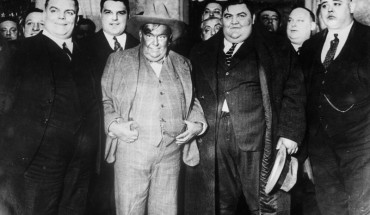By Joe Brewer
A great historical transition is underway in the biological and social sciences, one that brings with it a number of exciting new possibilities for humanity to guide itself through collective actions while addressing the myriad converging threats of the 21st Century. We are now embarking on a path to unify the social and biological sciences with the arts and humanities. I have joined the Evolution Institute as a Culture Designer in Residence to coordinate and guide this process.
This is a scientific revolution that is already many decades in the making. (A partial history can be found in articles like this and is elaborated in books like this.) It will take many more decades to fully play itself out. But there is an urgency to catalyze the evolution of the social sciences and make significant strides in the next 3-5 years — a case made in our preliminary analysis of the Grand Challenges for Cultural Evolution where we identified social issues like ecological harm, wealth inequality, violent conflict and the pace of technological change as areas where the field of cultural evolutionary studies is poised to make significant contributions for society.
We have initiated a collaborative project that is designed specifically to be this catalyst. It is the Cultural Evolution Society, midwifed throughout 2015 in a series of developments that enable us to enter the new year at a sprinter’s pace, guiding its formation into a fully-fledged entity in the next six months.
We have two goals with this project:
- Give birth to a highly prestigious and scientifically rigorous professional society that advances the theory and practice of cultural evolutionary studies.
- Build capacity for this community of researchers and practitioners to coordinate efforts and achieve more together than any of us working on our own.
Our ad hoc steering committee is comprised of lead researchers from anthropology, archeology, cultural evolutionary studies, evolutionary biology, cross-cultural psychology, and the mathematical study of history (known as “cliodynamics”). We formed voluntarily after a workshop held in College Park, Maryland in March of last year. Since that time, more than 1200 founding members from 54 nations around the world have signed up to help birth the society. Our membership is comprised of researchers from several hundred universities, as well as a significant minority with 25% working as social change practitioners away from the academy. We have received a $217,000 planning grant from the John Templeton Foundation to create the society—on a timeline starting December 1st, 2015 and ending in the summer of 2017—that funds my position to serve as coordinator throughout this period.
We just met for a second meeting December 20-22nd, again in College Park. A very productive meeting unfolded as we formed committees to create bylaws, nominate and elect officials, begin organizing the first annual conference, and to explore innovative approaches to tackling the grand challenges for cultural evolution—informed by the detailed survey analysis from a questionnaire sent to our membership in the fall that was referenced above. So we are now in a strong position to apply the tools of culture design to the field of cultural evolution.
A summary report from our meeting can be found here:
(Click Image for PDF)
A brief sketch of the approach we have outlined so far is the following:
- Establish a democratic process for our founding members to set an agenda for the society and answer the “Big Questions” for our field—tackling grand challenges with a strong focus on interdisciplinary research that breaks down institutional silos and moves toward a unified body of integrated social sciences.
- We will do this by a combination of centrally coordinated and self-organizing approaches. Centralized coordination will be employed to set up the platforms for collaboration—via normal activities including peer-review journals and annual conferences, and through more innovative approaches as we build out partnership networks. Self-organizing approaches will be enabled using web forums like the one this blog is posted on and the possible future development of mobile apps and other peer-to-peer interaction tools.
We envision a series of collaborative research projects, many of them self-organized and vetted by our members coming together on their own, with technical and educational support from the society to assist them. Some of the concerns and challenges for this approach were discussed in our meeting (and are discussed in the report above). At the same time we recognize that it is very early-stage and the community will set its own course with a democratically elected leadership in the months ahead. In this manner, we will be able to incubate a canon of educational and research materials for wide dissemination, build up and share open databases for comparative studies, and provide grant management (possibly even grant offerings) at lower overhead cost to encourage collaboration across institutions and research fields.
Suffice it to say, this is a very inspiring project.
An 18 month road map can be found in the summary report. Sketched briefly here, we envision standing up the society in the following rough timeline:
For those of you who have already signed up as founding members, I look forward to working with you on all of this in the next year and a half. If you haven’t become a founding member yet, please do so by going here and filling out this online form.
Here’s to an inspiring and productive 2016!






